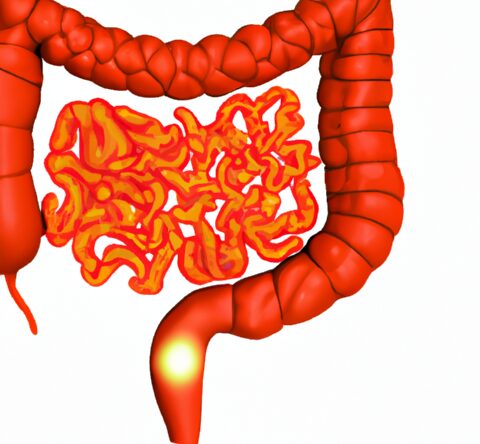
Colon cancer and ulcerative colitis are both serious health conditions that can have significant impacts on a person’s overall well-being. Understanding the risk factors and symptoms of these conditions is essential for early detection and effective treatment. In this article, we will explore the risk factors and symptoms of both colon cancer and ulcerative colitis, as well as the importance of regular screenings and seeking medical attention if any symptoms are experienced.
Colon cancer, also known as colorectal cancer, is the third most common cancer worldwide, with an estimated 1.8 million new cases diagnosed in 2018 alone. It occurs in the colon or rectum and is more common in people over the age of 50. However, younger people can also develop colon cancer, so it’s important to be aware of the risk factors and symptoms regardless of age.
One of the primary risk factors for colon cancer is a family history of the disease. If a close relative, such as a parent or sibling, has had colon cancer, the risk of developing the disease is elevated. Additionally, individuals with a personal history of inflammatory bowel disease, such as ulcerative colitis, are also at an increased risk of developing colon cancer.
Other risk factors for colon cancer include a diet high in red or processed meats, a lack of physical activity, obesity, smoking, and heavy alcohol consumption. While these risk factors cannot be completely eliminated, making healthy lifestyle choices, such as maintaining a balanced diet, staying physically active, and avoiding tobacco and excessive alcohol consumption, can help reduce the risk of developing colon cancer.
The symptoms of colon cancer can vary, but common signs include changes in bowel habits, such as diarrhea or constipation, rectal bleeding, blood in the stool, abdominal discomfort or pain, unexplained weight loss, and fatigue. It’s important to note that these symptoms can also be caused by less serious conditions, such as hemorrhoids or irritable bowel syndrome. However, if any of these symptoms persist, it’s essential to seek medical attention for further evaluation and testing.
Ulcerative colitis is a type of inflammatory bowel disease that causes inflammation and ulcers in the lining of the large intestine, leading to symptoms such as abdominal pain, diarrhea, and rectal bleeding. Like colon cancer, ulcerative colitis is more common in people over the age of 50, but it can occur at any age. The exact cause of ulcerative colitis is unknown, but it is believed to involve a combination of genetic, environmental, and immune system factors.
Risk factors for ulcerative colitis include a family history of the condition, as well as certain environmental factors, such as living in an urban area or in a northern climate. Additionally, factors such as smoking, certain medications, and a high-fat diet have also been associated with an increased risk of developing ulcerative colitis.
The symptoms of ulcerative colitis can vary in severity and may include abdominal pain and cramping, bloody diarrhea, rectal bleeding, urgency to have a bowel movement, fatigue, and weight loss. In some cases, ulcerative colitis can also cause complications such as inflammation of the skin, joints, and eyes, as well as an increased risk of developing colon cancer.
Regular screenings and early detection are crucial for both colon cancer and ulcerative colitis. For colon cancer, screening methods such as colonoscopies and stool tests can help detect the disease in its early stages when treatment is most effective. The American Cancer Society recommends that individuals at average risk of colon cancer begin screening at the age of 45, while those at higher risk due to family history or other factors may need to start screening earlier.
For ulcerative colitis, regular monitoring and screening can help detect the disease and prevent complications. Diagnostic tests such as colonoscopies, blood tests, and imaging studies can help confirm a diagnosis of ulcerative colitis and monitor the progression of the disease. It’s important for individuals with a family history of ulcerative colitis or other risk factors to discuss screening options with their healthcare provider.
In conclusion, colon cancer and ulcerative colitis are serious health conditions that can have significant impacts on a person’s overall well-being. Understanding the risk factors and symptoms of these conditions is essential for early detection and effective treatment. Making healthy lifestyle choices, such as maintaining a balanced diet and staying physically active, can help reduce the risk of developing colon cancer. Regular screenings and seeking medical attention if any symptoms are experienced can help detect both colon cancer and ulcerative colitis in their early stages when treatment is most effective. If you have any concerns about your risk of developing colon cancer or ulcerative colitis, it’s important to discuss them with your healthcare provider.












